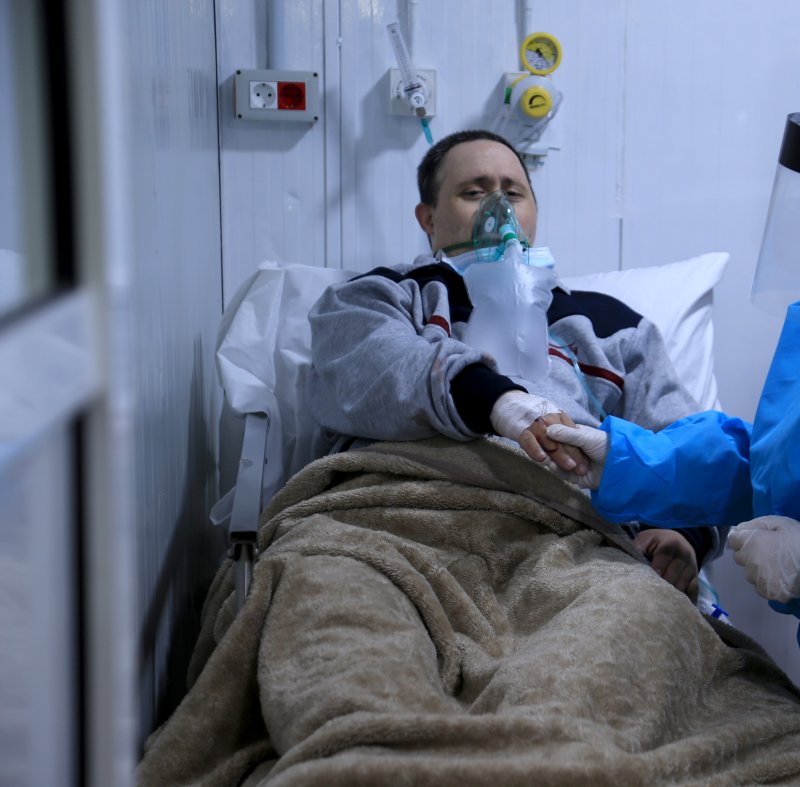Patients hospitalized due to COVID-19 with higher levels of systemic inflammation may be at increased risk for death without steroid treatment, a new study suggests. Photo by Nabil Mounzer/EPA-EFE
May 12 (UPI) -- Severe inflammation seen in some patients hospitalized with COVID-19 increases their risk for dying from complications related to the virus within one year, a study published Thursday found.
COVID-19 patients with the highest levels of systemic inflammation, or inflammation that affectsmultiple organs, during their hospital stay had a 61% higher risk for dying from any cause within one year of hospital discharge than those with lower levels, the researchers said.
The risk for death from any cause linked with severe inflammation was lowered by 51% if patients took prescribed anti-inflammatory steroids after hospitalization, data published by Frontiers in Medicine showed.
"COVID-19 is known to create inflammation, particularly during the first, acute episode," study co-author Arch G. Mainous III said in a press release.
"Here, we show that the stronger the inflammation during the initial hospitalization, the greater the probability that the patient will die within 12 months after seemingly 'recovering,'" said Mainous, vice chair for research in community health and family medicine at the University of Florida in Gainesville.
At least one in 10 patients with severe COVID-19 develops heart, lung or kidney complications due to inflammation caused by the virus, research indicates.
For this study, Mainous and his colleagues analyzed the anonymous electronic health records of 1,207 adults hospitalized in 2020 or 2021 after testing positive for COVID-19 within University of Florida Health's system.
All of the selected participants had been monitored for at least one year after hospital discharge, the researchers said.
To assess for severity of systemic inflammation, or inflammation that affects multiple organ systems, the researchers measured blood levels of C-reactive protein, which are known to rise in the presence of inflammation.
Blood concentrations of C-reactive protein during hospitalization was strongly correlated with the severity of COVID-19, the researchers said.
C-reactive protein levels were more than twice as high for patients who required supplemental oxygen to breathe compared to those who did not, the data showed.
They were more than three-fold higher in patients who needed mechanical ventilation to maintain breathing, the researchers said.
The findings suggest that the severity of inflammation during hospitalization for COVID-19 can predict the risk for subsequent serious health problems, including death, from "long COVID," they said.
They also imply that prescribing oral steroids to COVID-19 patients after hospital discharge can reduce inflammation and lower their risk for these health problems, according to the researchers.
Previous studies have suggested that treatment with steroids, including dexamethasone, can reduce inflammation seen in patients with severe illness from the virus.
"COVID-19 ... creates inflammation in many places besides the airways -- for example in the heart, brain, and kidneys, [and] high degrees of inflammation can lead to tissue damage," Mainous said.
"We may ... need to start thinking of COVID-19 as having ongoing effects in many parts of the body after patients have recovered from the initial episode," he said.















